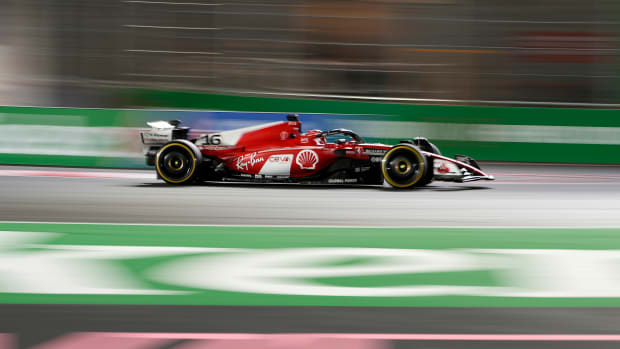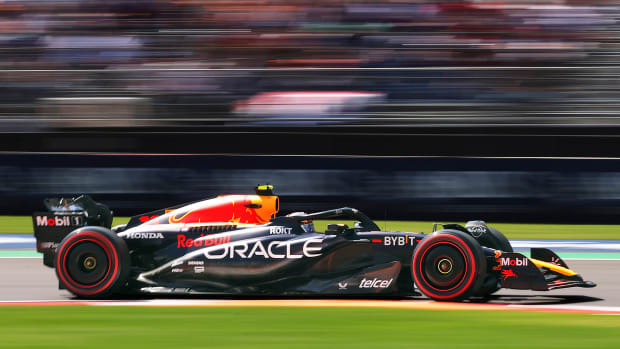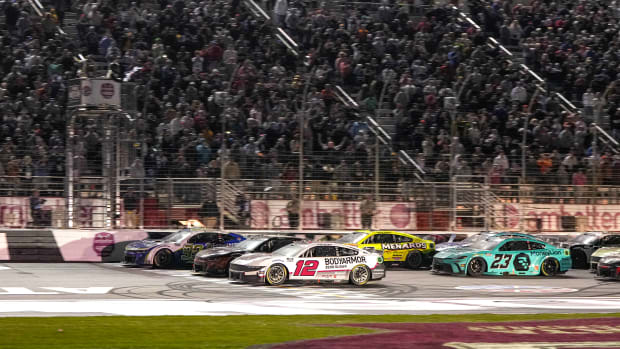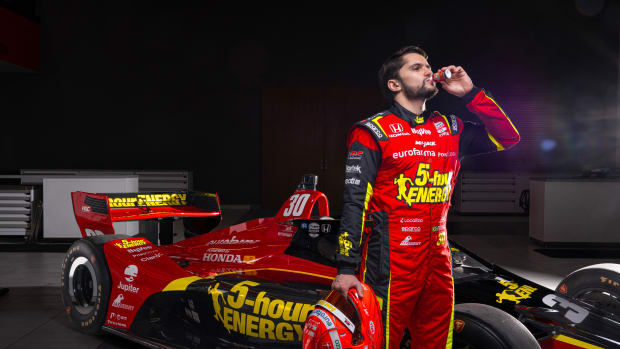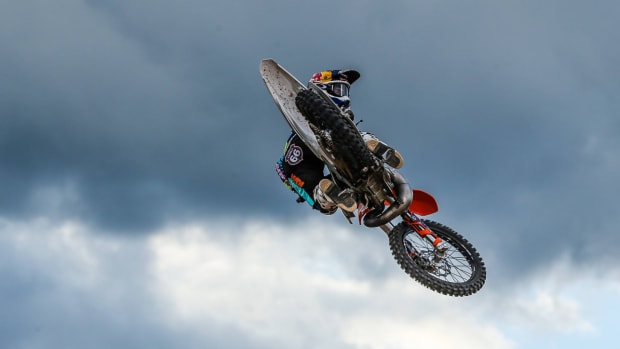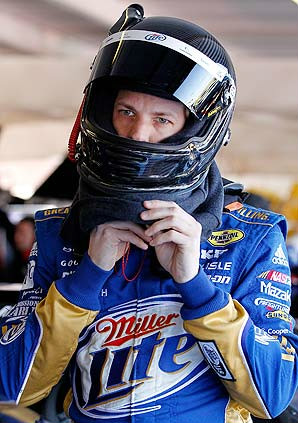
To tweet or not to tweet at races; Gentlemen, start your arguments
When Brad Keselowski stepped out of his car during a lengthy red-flag delay, NASCAR stepped firmly into a strange new cyberworld filled with hashtags and acronyms. Keselowski's use of the social networking phenomenon Twitter while the race was stopped sent the sport roaring into a future where the only restrictor plate is how much information you can convey in the 140-character limit. Other than that, Twitter offers NASCAR an excellent way to connect to a fan base that has been dwindling in recent years, a development that can be only good news for the sport.
Sure, there are still plenty of people who are resisting this new way of communicating. They want nothing to do with -- as New England coach Bill Belichick said last year -- "My Face, Yearbook or any of that." That is to be expected. Certain segments of the populace have always resisted technological change. There were people who didn't want an automobile, or a telephone, or a television, or a computer, or a cell phone. Some people still don't want those things.
But the reality is if you wish to remain connected with the world, especially if you are a company with a product to promote, then staying on top of the latest technological developments is essential. That is especially true in sports. It would be ludicrous these days for any sports league to say they don't like television, so they're not going to allow their events to be broadcast on it. One day soon, an aversion to social media will seem just as antiquated and narrow-minded.
That is why Keselowski's tweets might eventually end up being as important to the growth of NASCAR as the 1979 Daytona 500, the famous race that ended with a last-lap crash and an infield fist fight involving Cale Yarborough and the Allison brothers, Bobby and Donnie. That single race, televised nationally, has been credited with propelling NASCAR into an era of rapid growth in the 1980s and '90s. Keselowski's tweets could have a similar impact.
NASCAR has definitely been slow to embrace the social media trend, but that seems to be changing, and Keselowski has suddenly become the face of that change. His stream of tweets during the red-flag delay -- caused when Juan Pablo Montoya's car slammed into a jet dryer and started a massive fire -- was one of the most talked about moments of the race. It also enabled him to triple his followers on Twitter to more than 200,000. Keselowski said later that all he was trying to do was convey the same type of information to people that he would have liked had he been monitoring the race through Twitter.
"As a fan of the sport, I find myself asking the question of what would I want to see. And to that end, that's what I try to show," Keselowski said. "That's what I try to be as an athlete, entertainer, race car driver, whatever you want to call me. And to me, the things that I did on Twitter that night [were] something that I would want to see. I don't think about it any harder than that, and I'm glad that people liked it and enjoyed it. Obviously, my generation is obsessed with technology and access."
That last statement is the key to this whole discussion. Keselowski is 28, and people in their 20s have grown up in a time where technology has broken down barriers and enabled more direct communication. Those 20-somethings want to be able to see behind the scenes, and they want to do it right away. They don't want to wait until the highlights are on TV or, heaven forbid, until the newspaper is delivered the next day. If you make this age group wait or deny them direct access, there is a good chance they will simply turn their attention elsewhere. After all, there are plenty of other entertainment options in the cyber world.
That is what makes the social media detractors so shortsighted. They are still stuck in the 20th century, back when fans were confined to one side and the participants were safely on the other. That is no longer the way sports works. If NASCAR wants to grow and get back to the days when its fan base was steadily expanding, then it needs to fully embrace all aspects of social media. Yet even some of the younger drivers disagreed with what Keselowski did.
"Where does it end?" asked 31-year-old Denny Hamlin. "Do you then text or tweet during cautions and then you look up and run into the guy in front of you? If I'm thinking about winning the race, I'm not thinking about social media when I'm under that green flag or yellow flag or any of those conditions. So I think it's just different people see things differently about what's important."
Kevin Harvick jokingly said that if cell phones are allowed in the car during a race he's "going to look for every app I can for miles-per-hour, GPS mapping, anything I can find to put in my car. I'm looking for it because I'm looking to outlaw this rule as fast as I can because I don't want to have to keep up with it."
The most vocal criticism came from racing analyst Brad Daugherty, who is also part owner of JTG Daugherty Racing. During one of his television appearances the week after the Daytona 500, he went on a rant in which he said NASCAR should have fined Keselowski for having the phone in his car during the race.
"I have had it with the social media stuff," Daugherty said. "This is ridiculous. You are in the race car. You are a professional race car driver. ... There is no place for this in professional sports when you are the athlete. His focus [should be] 100 percent on trying to win the race. This social media stuff, especially something like this, I just think it is inappropriate and there is no room for that."
NASCAR thought otherwise. On Feb. 28, a little less than 24 hours after those epic tweets, it said Keselowski wouldn't be fined and could keep his cell phone in his race car during all events.
"NASCAR will not penalize Brad Keselowski for his use of Twitter during last night's Daytona 500,'' NASCAR said in a statement. "Nothing we've seen from Brad violates any current rules pertaining to the use of social media during races. As such, he won't be penalized. We encourage our drivers to use social media to express themselves as long as they do so without risking their safety or that of others.''
Fittingly, Keselowski responded to the statement with a tweet. "Alrighttttt Guess I get to keep tweeting... @ESPNMotorsports: NASCAR says @Keselowski can keep cell phone in car."
Hopefully, for NASCAR's sake, he won't be alone.
